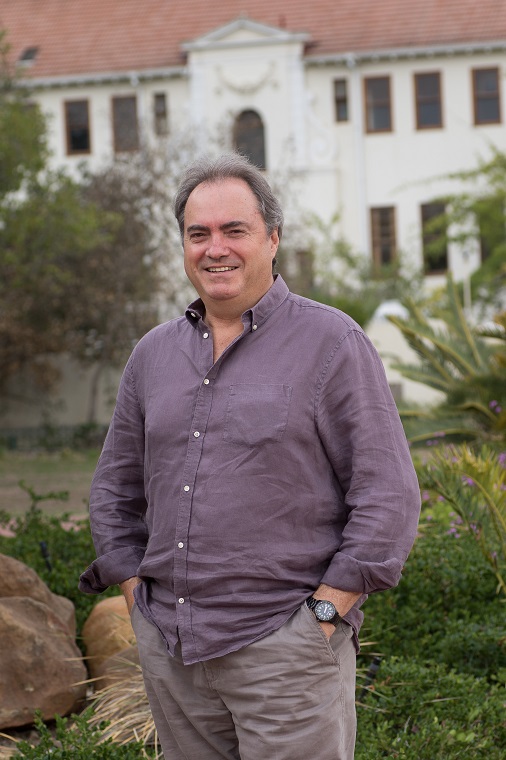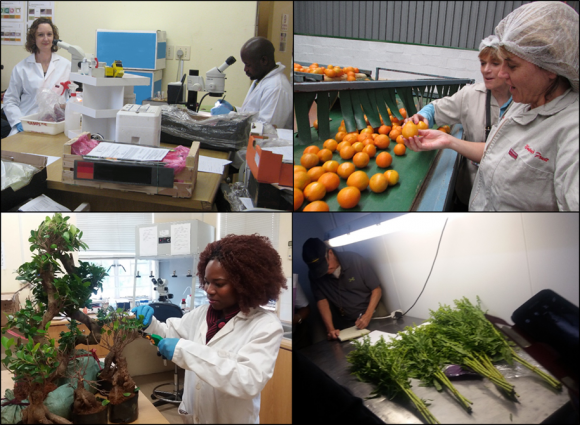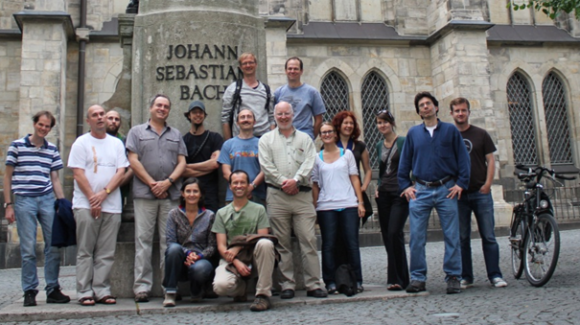
Prof Dave Richardson from the DST-NRF Centre of Excellence for Invasion Biology (CIB) at Stellenbosch University (SU) and a world leading scientist in the field of invasion biology, is the recipient of the 2018 Kwame Nkrumah Award for Scientific Excellence.
This continental award is one of three awards made annually by the Commission of the African Union to recognise outstanding African scientists for their achievements, discoveries and innovations. Established in 2008 in memory of the well-known Pan-Africanist leader Dr Kwame Nkrumah, the continental award includes a monetary award of US$100 000.
Prof Richardson is a distinguished professor in the Department of Botany and Zoology at SU, and director of the (CIB, one of the most productive and influential research groups working in the field of biological invasions in the world. Biological invasions are a rapidly growing threat to biodiversity and ecosystem functioning in Africa and many parts of the world.
Prof Richardson says he is extremely honoured to receive this award: “I hope that it will help to spread awareness of the massive problems with invasive species worldwide, and the urgent need for innovative solutions to prevent the escalation of impacts on biodiversity and human livelihoods.”
He also commended South Africa’s Department of Science and Technology and Stellenbosch University for their substantial investments in this field through their funding of the CIB: “The Centre has created a critical mass of knowledge and expertise across disciplines to address diverse issues pertaining to biological invasions in Africa”.
Prof Louise Warnich, Dean of the Faculty of Science, says the award is yet another well-deserved recognition of Prof Richardson’s significant contributions to the field of invasion biology: “The awards confirms his status as an influential international leader in this field. The CIB has continued to blossom under his leadership and he is an excellent role model for young researchers.”The Award Ceremony will be held at the AU Conference Center on 10 February 2019 during the Assembly of the AU Heads of States (The Summit) in Addis Ababa, Ethiopia.
More about Prof Richardson
Prof Richardson is regarded as one of the most influential authors globally in the field of invasion science. His research focusses on biological invasions, and in particular the dynamics of plant invasions, specifically trees and shrubs. He has worked predominantly on invasive species in South Africa, mainly in the fynbos and savanna biomes, but has also published widely on invasive species in other parts of Africa and the world, on global patterns and trends in biological invasions, and on developing a sound theoretical basis for invasion science.
One of his major contributions to invasion science has been the thorough development and exploitation of new model systems for the elucidation of all the diverse perspectives that need to be considered to understand and manage invasive species. His contributions on the ecology of pines and Australian acacias are widely recognised as foundation studies in invasion science.
Prof Richardson has also contributed substantially to the formulation of practical guidelines for the improved management of invasions. He is frequently consulted by conservation agencies and government departments, and serves on various committees related to environmental management in South Africa and abroad.
He is currently one of only a handful of African scientists rated as a “Highly Cited Researcher” by Clarivate Analytics – these are scientists who rank in the top 1% by citations for their field in the Web of Science and are making an impact in solving some of the world’s biggest challenges. He has received numerous awards, including the Hans Sigrist Prize (2006), the John F.W. Herschel Medal from the Royal Society of South Africa (2012), and the Havenga Prize for Life Sciences from the South African Academy for Science and Arts (2013). In 2019 he received a third successive A1 rating from the National Research Foundation, reflecting his status as a world leader in invasion science.



